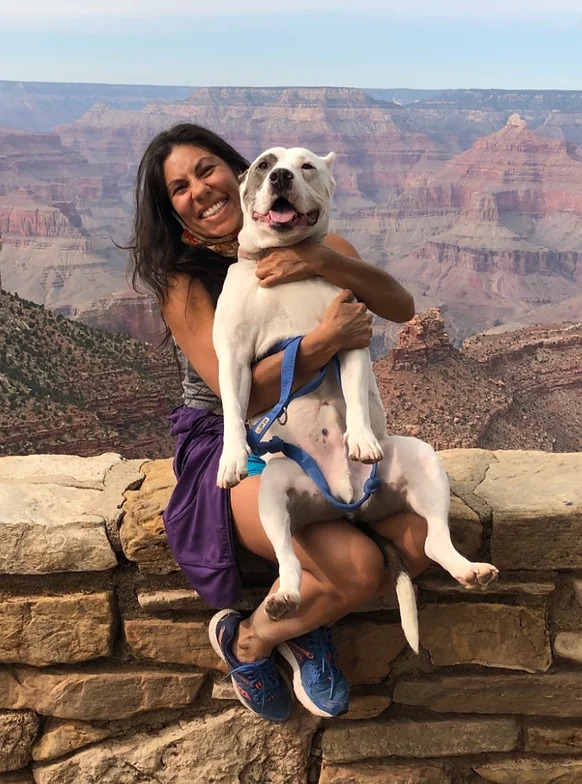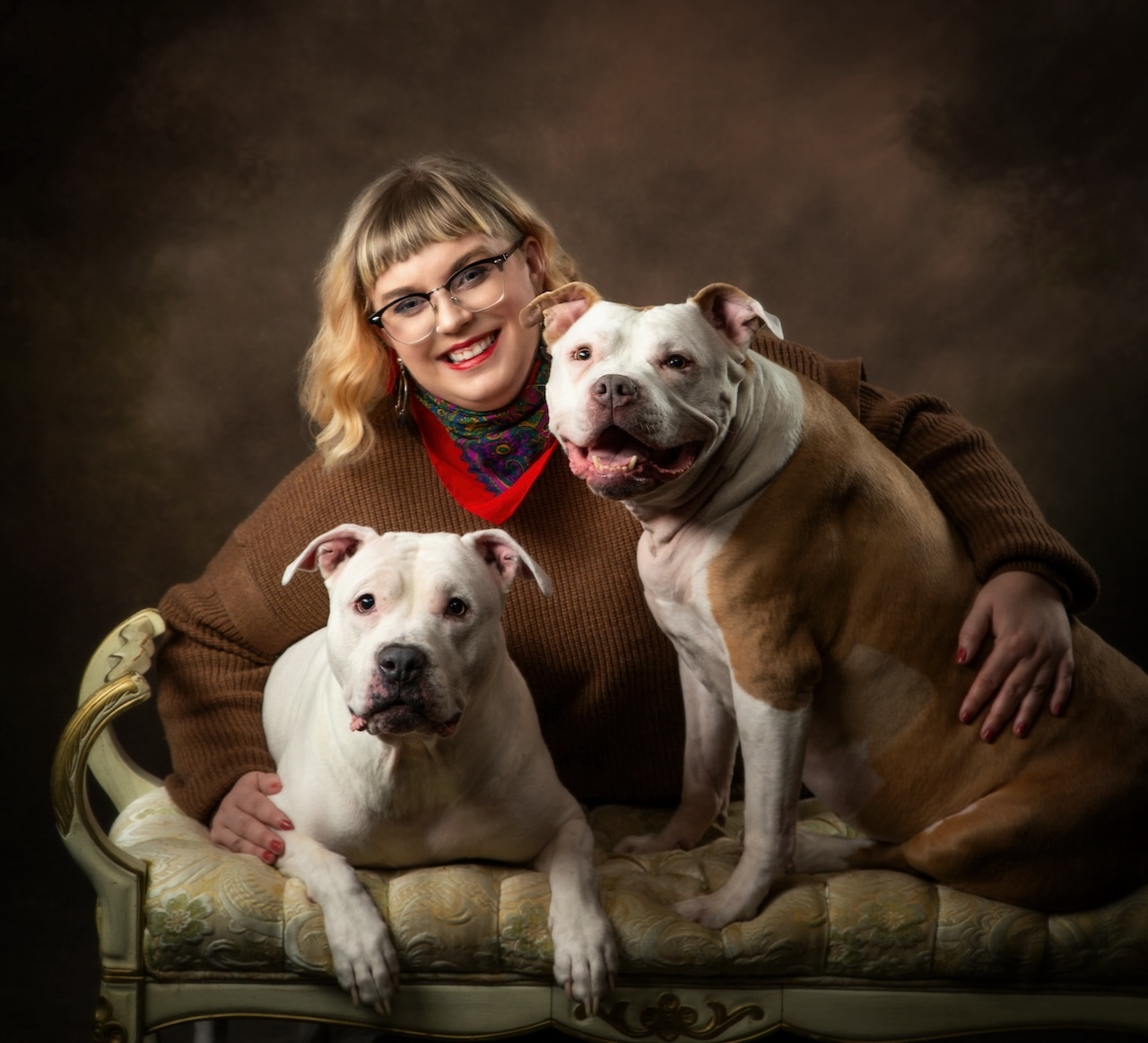
Catalog Advanced Search
-
Contains 5 Component(s), Includes Credits
Learn about the research showing the value of using standardized rating tools to evaluate feline behavior and welfare in shelters.
Maddie's® Insights are monthly webcasts with practical tips based on current research to help pets and people.
Program Description:
Safeguarding the well-being of cats is essential to the mission of any responsible animal shelter. Environmental enrichment and behavior modification are often key to this goal. Measuring response to these interventions is essential to ensure strategies are successful. This webinar will present four ordinal rating scales designed to evaluate different expressions of cat behavior/welfare on a 0–5 scale (modified Fear, Anxiety, and Stress score; Response to Petting score; Participation in Play score; and Food Intake Summary score) that have excellent inter-observer agreement and reliability, and a few other tools to describe behavior in a quantitative way. These tools are exceptionally useful to evaluate the response individual cats have to specific interventions, make decisions about which interventions should be tried first by looking at what was effective in cases presenting similarly in the past, and evaluating the efficacy of different interventions across a population of similar cats in a research project.
What you'll come away with:
- An understanding of the value of using standardized rating tools to evaluate behavior and welfare in shelters
- The ability to identify a range of practical applications for these tools, in both in the shelter and beyondPresenter: Jacklyn Ellis, PhD, Director of Behavior, Toronto Humane Society
This webinar has been pre-approved for 1.0 Certified Animal Welfare Administrator continuing education credits by The Association for Animal Welfare Advancement and by the National Animal Care & Control Association. It has also been approved for 1 hour of continuing education credit in jurisdictions which recognize RACE approval between 9/26/24 - 9/25/26. Complete the quiz to earn continuing education credit.
Visit Maddie's Pet Forum to comment, follow a discussion or ask questions: https://maddies.fund/MIwebcast...
keywords Maddie's Insights, Jacklyn Ellis, PhD, behavioral data for cats, feline behavior

Jacklyn J Ellis, PhD
Director of Behavior
Toronto Humane Society
Jacklyn Ellis is board certified by the Animal Behavior Society as a Certified Applied Animal Behaviorist, is Certified in Shelter Behavior – Cat by the International Association of Animal Behavior Consultants and is the Director of Behavior at Toronto Humane Society. She earned her PhD in Animal Welfare at the Atlantic Veterinary College, University of Prince Edward Island, where she conducted research on methods for reducing stress in shelter cats. Her work has been published widely in peer reviewed journals and she has presented at many national and international conferences, particularly on feline stress and elimination behavior. She has recently authored two chapters for a new edition of the leading textbook on the behavior and welfare of shelter animals.
-
Enroll
- All Users - Free!
- More Information
-
Enroll
-
Contains 3 Component(s), Includes Credits
In this presentation, the HEART LA team provides a brief overview of the legal protections for tenants with pets and the eviction process. They also discuss data-driven practices and how they inform all areas of our programming from legal services to policy & advocacy, and community engagement.
This webcast was part of the Camp Maddie: Pet-Inclusive Housing Edition virtual seminar.
Housing Equity & Advocacy Resource Team (HEART LA) is dedicated to ensuring that legal protections for tenants with pets are not just theoretical but actively applied in the real world to prevent housing insecurity. Many tenants, especially those with emotional support animals (ESAs), face legal barriers and discrimination from landlords despite existing protections. Their mission is to bridge this gap by using legal interventions to secure housing rights and provide tenants with the security they deserve. They believe that no one should be forced to choose between their home and their pet, and our work focuses on translating legal rights into real-world protections that keep people and their animals together.
In this presentation, the HEART LA team provides a brief overview of the legal protections for tenants with pets and the eviction process. They also discuss data-driven practices and how they inform all areas of our programming from legal services to policy & advocacy, and community engagement.
Presenters from HEART LA: Dianne Prado, Founder and President; Diana Cruz, Program Director; Zaira Bernal, Paralegal
This webinar has been pre-approved for 1.0 Certified Animal Welfare Administrator continuing education credits by The Association for Animal Welfare Advancement and by the National Animal Care & Control Association.
To find out more about this webinar, visit https://forum.maddiesfund.org/...

Dianne Prado
Founder & President
Housing Equity & Advocacy Resource Team (HEART LA)
Dianne Prado is the Founder and President of Housing Equity & Advocacy Resource Team, also known as HEART LA. HEART LA is a legal non-profit that helps ensure people and their pets remain housed. Dianne is also an appointed public member of the California Veterinary Medical Board, a trainer and consultant for the Stay Housed Los Angeles Eviction Defense Program, and Lecturer in Law for UCLA Law School, teaching Los Angeles Housing Law and Policy.
Diana Cruz
Program Director and Law Clerk
Housing Equity & Advocacy Resource Team (HEART LA)
Diana Cruz came to HEART LA as a client in 2018 and officially joined the team in 2020. She has a background in Student Affairs, capacity building as an Americorps VISTA, and studied at UC Davis. She is committed to helping ensure that people are able to access and maintain their housing with their animal companions. She lives with a silly cat named Icarus and a goofy dog named Ranger.
Zaira Bernal
Paralegal
Housing Equity & Advocacy Resource Team (HEART LA)
Zaira Bernal joined HEART LA in 2023. Prior to working with HEART LA, Zaira aided domestic violence survivors at Domestic Violence Project, led by the Los Angeles County Bar Association's Counsel for Justice. She also served as a paralegal at Eviction Defense Network, a non-profit dedicated to closing the access to justice gap in eviction proceedings. Zaira lives with her bestie, an effervescent pup named Ophelia.
-
Enroll
- All Users - Free!
- More Information
-
Enroll
-
Contains 3 Component(s), Includes Credits
How dog-inclusive housing improves both mental and physical health, lowers stress, and keeps pets out of shelters and the real impact this has on families and communities nationwide.
This webcast was part of Camp Maddie: Pet-Inclusive Housing Edition virtual seminar.
Dog-inclusive housing isn’t just about allowing pets—it’s about keeping families together and creating healthier, more compassionate communities. Across the country, many pet owners face tough choices due to housing restrictions, often having to give up their dogs. By embracing dog-inclusive policies, we can help families stay together and create neighborhoods where pets are valued as part of the family.
In this presentation Shannon Glenn, Executive Director of My Pit Bull is Family, shares insights from over 13 years of advocating for dog inclusive rentals, showing how dog-inclusive housing improves both mental and physical health, lowers stress, and keeps pets out of shelters. She breaks down the real impact this has on families and communities nationwide, and discusses how everyone benefits when housing is accessible to all—pets included.
Presenter: Shannon Glenn, Executive Director, My Pit Bull is Family
This webinar has been pre-approved for 1.0 Certified Animal Welfare Administrator continuing education credits by The Association for Animal Welfare Advancement and by the National Animal Care & Control Association.
To find out more about this webinar, visit https://maddies.fund/DogInclus...

Shannon Glenn
Executive Director
My Pit Bull is Family
Shannon started with My Pit Bull is Family in 2014 and quickly became an expert in housing policy and surrender prevention for the animal welfare community. She has an extensive professional background in grassroots campaigns, voter outreach, community building, fundraising, homeless advocacy, and policy creation. Shannon is a tireless advocate for adults experiencing homelessness and was previously the Shelter Supervisor for the only pet-friendly emergency homeless shelter in the state of Minnesota.
Shannon holds a Master’s in Advocacy and Political Leadership where she centered her degree program around drafting policies to end housing and insurance discrimination for families with large dogs and graduated from the Executive Leadership Certification program for Animal Welfare at Southern Utah University in partnership with Best Friends Animal Society in 2021.
In 2019, Shannon developed the North Minneapolis Pet Resource Center program after volunteering at Minneapolis Animal Care and Control where she realized that her neighbors in North Minneapolis lacked access to quality pet food, supplies and resources leading to increased owner surrenders and at large pets.
She lives in North Minneapolis – Minnesota with her partner, Anthony, their four dogs Charlotte, Fern, Luna Tuna and Wilbur, and cat Max. You can usually find Shannon spending her free time binging true crime shows, skating in circles learning how to play roller derby, & dreaming about traveling.-
Enroll
- All Users - Free!
- More Information
-
Enroll
-
Contains 3 Component(s), Includes Credits
An overview of three elements of the human homeless response system: diversion and prevention, emergency shelters and interim housing, and permanent housing
This webcast was part of Camp Maddie: Pet-Inclusive Housing Edition virtual seminar.
Homelessness is a growing epidemic in the United States. According to the State of Homelessness: 2024 Edition report released by the National Alliance to End Homelessness, a record-high 653,104 people experienced homelessness on a single night in January 2023, more people than ever are experiencing homelessness for the first time, and severe housing cost burden is on the rise. A growing body of evidence also shows that housing and homelessness has significant impacts on the surrender of animals to animal shelters, with housing-related surrenders making up about 14% of overall intakes. Therefore, the design, efficacy, and service delivery of the human homeless response system should be of interest to the animal welfare field for more informed advocacy and program design.
This 1-hour webinar will provide an overview of three elements of the human homeless response system: diversion and prevention, emergency shelters and interim housing, and permanent housing. By understanding these major components of the human homeless response system, attendees will have more clarity on how to advocate for and design programs to support pet-inclusive solutions. By the end of this webinar, attendees will be able to:
- Define three major components of any community’s human homeless response system
- Name at least one area of potential collaboration between your animal welfare organization and a housing and/or homelessness organizationPresenter: Christine Kim, Founder, My Dog is My Home
This webinar has been pre-approved for 1.0 Certified Animal Welfare Administrator continuing education credits by The Association for Animal Welfare Advancement and by the National Animal Care & Control Association.
To find out more about this webinar, visit https://maddies.fund/Understan...

Christine Kim
Founder
My Dog Is My Home
Christine is a macro social worker with a specialized interest in building programs and policies that recognize the power of the human-animal bond. During her time working in supportive housing, Christine became acutely aware of the barriers people experiencing homelessness with animals face when attempting to access shelter and housing services. Christine’s research and work with human-animal homeless families includes a publication in the pioneering book Animals in Social Work: Why and How They Matter (Palgrave Macmillan, 2014), an exhibition for The Animal Museum called My Dog Is My Home and the founding of the non-profit organization by the same name. She served as the first director of the NYC Mayor's Office of Animal Welfare under Mayor Bill de Blasio, and she is the recipient of the ASPCA’s 2021 Public Service Humane Awards for her leadership at the NYC’s Mayor’s Office during the COVID-19 pandemic.
-
Enroll
- All Users - Free!
- More Information
-
Enroll
-
Contains 3 Component(s), Includes Credits
Learn strategies to effectively market hard-to-place shelter pets to fosters and adopters, as well as practical tips and innovative methods for presenting challenging pets in a way that highlights their strengths while addressing potential concerns.
This course is part of Maddie's Monthly Foster Connection, monthly webcasts about foster care - supporting pets in our community and animal shelters.
With every shelter stuffed to bursting, finding fosters and adopters is crucial. For some pets this is simple, but others are harder to place. In this workshop, we’ll discuss your favorite long stay pets to identify strategies for marketing them to fosters and adopters. This workshop is not just for foster staff– it’s open to anyone who is interested in marketing pets who are harder to place!
Make sure to bring information about your own favorite or most challenging long stay. We’ll choose several and work through them together, discussing what works, what doesn’t work and some innovative new ways that can get extra attention and help them find the right home. We’ll discuss how we talk about behavioral and health challenges in bios and social media and discuss the optimal ways to be frank about issues while also not deterring potential adopters. We’ll look at different social media channels and how to optimize content about those pets for those channels to get the message across and help these pets put their best paw forward. Be prepared for a fun, frank and useful webinar with a lot of workshopping and participation!
Presenter: Finnegan Dowling, Maddie's® Program and Social Media Manager for Mutual Rescue ™
This webinar has been pre-approved for 1.0 Certified Animal Welfare Administrator continuing education credits by The Association for Animal Welfare Advancement and by the National Animal Care & Control Association.
Visit Maddie's Pet Forum to comment, follow a discussion or ask questions: https://maddies.fund/FosterCon...

Finnegan Dowling
finnegan.dowling@gmail.com
Maddie's® Program and Social Media Manager for Mutual Rescue ™
Finnegan Dowling has been in animal welfare for more than 25 years and has worked in shelters in Washington, Colorado, California, and Nicaragua. Prior to working for Mutual Rescue, she was the social-media manager for HSSV where her work was honored with Shorty and Communicator Awards. Finnegan's writing has been published in The Bark, Bay Woof, and Huffington Post. In her current role she works with shelters around the country to help them start day foster programs. She often presents on day fostering and marketing at animal welfare conferences. She has spoken at Best Friends, Virginia Federation of Humane Societies, New Mexico Humane Conference and many others. She lives in coastal Texas with an opinionated dog and her husband.
-
Enroll
- All Users - Free!
- More Information
-
Enroll
-
Contains 2 Component(s), Includes Credits
Help dogs cope better in a shelter environment with the support of medication
This presentation is part of Maddie's Monthly Behavior Connection, monthly webcasts about pet behavior - supporting pets in our community and animal shelters.
This session covers how to help dogs cope better in a shelter environment with the support of medication.
Presenter: Meghan E. Herron, DVM, DACVB, Senior Director, Behavioral Medicine Research, Education and Outreach, Gigi's
This webinar has been pre-approved for 1.0 Certified Animal Welfare Administrator continuing education credits by The Association for Animal Welfare Advancement and by the National Animal Care & Control Association.-
Enroll
- All Users - Free!
- More Information
-
Enroll
-
Contains 2 Component(s), Includes Credits
Learn about maintenance behavior medications and how to identify dogs who can benefit from them
This presentation is part of Maddie's Monthly Behavior Connection, monthly webcasts about pet behavior - supporting pets in our community and animal shelters.
This session covers:
• What are the indications and contraindications for maintenance behavior medications, and how to identify the dogs who can benefit from them
• What are the types of maintenance behavior medications
• How to choose the right behavior medication for each dog, based on their diagnosis, history, and individual needs within a sheltering environment
• How to prescribe, administer, monitor, and adjust behavior medications for optimal results and minimal side effects
• How to communicate and educate the owners or adopters of shelter dogs on behavior medications, and what to expect during and after the treatmentPresenter: Dr. E'Lise Christensen, Board-Certified Veterinary Behaviorist and Chief Medical Officer at Behavior Vets
This webinar has been pre-approved for 1.0 Certified Animal Welfare Administrator continuing education credits by The Association for Animal Welfare Advancement and by the National Animal Care & Control Association.-
Enroll
- All Users - Free!
- More Information
-
Enroll
-
Contains 5 Component(s), Includes Credits
How do you support a dog who is a wallflower in the shelter? How about a socially awkward dog, or an adrenaline junkie? Learn how to help foster caregivers help dogs who need extra behavior support.
How do you support a dog who is a wallflower in the shelter? How about a socially awkward dog, or an adrenaline junkie? This course is designed to teach shelter and rescue professionals to identify common behavior problems in shelter dogs and break down barriers for foster homes. Taking on a dog that presents with concerning behaviors can be a daunting task for a foster caregiver, especially a new foster. Training shelter staff and volunteers to assist and support foster dogs during their stay not only empowers foster caregivers to take on more cases, but also increases positive outcomes for dogs that present with behavior concerns.
This course has been pre-approved for 4.0 continuing education units for trainers in the knowledge area from the Certification Council for Professional Dog Trainers.
-
Enroll
- All Users - Free!
- More Information
-
Enroll
-
Contains 5 Component(s), Includes Credits
This talk will walk you through the existing (and pending!) research on behavioral euthanasia to help us separate fact from fiction.
Maddie's® Insights are monthly webcasts with practical tips based on current research to help pets and people.
Behavioral euthanasia is a sensitive topic with a wide variety of personal thoughts and emotions. But what do we actually know about it? How often does it happen, and why? Do we have data we can use to make decisions? Where can we turn for information? This talk will walk you through the existing (and pending!) research on behavioral euthanasia to help us separate fact from fiction.
Learning Objectives
In this session, attendees will come away with:
● An understanding of the history of research on behavioral euthanasia and the gaps
● A summary of the 2024 paper "Factors Associated with Behavioral Euthanasia in Pet Dogs" and learn about the methods used (and why)
● The types of behaviors that led to euthanasia in this study, and the information we can (and can't) use from it to make decisions
● The main findings of the study, including pieces that agree or disagree with previous literature
● The limitations of research like this, and the potential for future study
● Takeaways for pet professionals based on this research and resources available for folks in this situation
Presenter: Miranda Hitchcock, MS Applied Animal Behavior, CDBC, CBCC-KA, CPDT-KA, Fear Free Certified
This webinar has been pre-approved for 1.0 Certified Animal Welfare Administrator continuing education credits by The Association for Animal Welfare Advancement and by the National Animal Care & Control Association. It has also been approved for 1 hour of continuing education credit in jurisdictions which recognize RACE approval between 8/19/24 - 8/19/26. Complete the quiz to earn continuing education credit.
Visit Maddie's Pet Forum to comment, follow a discussion or ask questions: https://maddies.fund/MIwebcastBehavioralEuthanasia
keywords Maddie's Insights, Miranda Hitchcock MS, behavioral euthanasia in pet dogs

Miranda Hitchcock, MS
Co-founder and Executive Director
Every Dog Behavior and Training
Miranda is the co-founder and executive director of Every Dog Behavior and Training, a nonprofit organization dedicated to providing inclusive, accessible dog training and behavior resources.
She began working with dogs as a volunteer at an animal shelter and fell down the rabbit hole of behavior. She moved to Austin for a Maddie’s Executive Leadership Fellowship with two of Austin’s shelters before becoming the operations manager at the municipal animal shelter.
Miranda left sheltering to found Every Dog in 2019, taking her behavior and leadership expertise to the nonprofit world. She is a certified dog trainer and multi-certified dog behavior consultant. She holds a master’s degree in applied animal Behavior and Welfare from Virginia Tech. In 2024, her first research paper on behavioral euthanasia was published in the journal Frontiers of Veterinary Science.
When not working, Miranda loves rock climbing, listening to fantasy audiobooks, and snuggling with her pittie, Nina.
-
Enroll
- All Users - Free!
- More Information
-
Enroll
-
Contains 5 Component(s), Includes Credits
Learn about common retention programs focused on companion dogs and identify gaps between available programs and community needs
Maddie's® Insights are monthly webcasts with practical tips based on current research to help pets and people.
Animal sheltering has evolved to focus on community-based services as much as in-shelter care. The philosophy that animal sheltering begins and ends within the community through various support programs is gaining traction. These programs, ranging from food banks and training classes to veterinary services, aim to support pet guardianship and retention in the home. However, there's often a mismatch between the programs offered and the actual needs of the community. In this session, Seana will share research on pre-COVID retention programs focused on companion dogs offered by US animal sheltering organizations, highlighting gaps between these programs and community needs. She will outline a strategic decision-making process for selecting community programs to support pets in homes and discuss different program options.
Learning Objectives:
In this session, attendees will:
· Learn about common retention programs focused on companion dogs offered by US shelters and identify gaps between available programs and community needs
· Become familiar with a strategic decision-making process that can be used when developing and evaluating community programs that support pets in homes
Presenter: Seana Dowling-Guyer, MS, Associate Director, Collaborative (Center) for Shelter Dogs; Lecturer, Masters in Animals and Public Policy,Center for Animals and Public Policy, Cummings School of Veterinary Medicine
This webinar has been pre-approved for 1.0 Certified Animal Welfare Administrator continuing education credits by The Association for Animal Welfare Advancement and by the National Animal Care & Control Association. It has also been approved for 1 hour of continuing education credit in jurisdictions which recognize RACE approval from July 22, 2024 - July 21, 2026. Complete the quiz to earn continuing education credit for RACE, CAWA and NACA.
Visit Maddie's Pet Forum to comment, follow a discussion or ask questions: https://maddies.fund/MIwebcast...
keywords Maddie's Insights, Seana Downling-Guyer, dog retention programs, community programs for shelter dogs

Seana Dowling-Guyer, MS
Associate Director
Collaborative (Center) for Shelter Dogs
Seana Dowling-Guyer is the Associate Director of Tufts Collaborative (Center) for Shelter Dogs at Cummings School of Veterinary Medicine at Tufts University and teaches in the M.S. in Animals and Public Policy program. Seana is interested in the intersection of animal behavior and people’s perceptions of that behavior, particularly how our attitudes and knowledge of animal behavior impact animal welfare and behavior. Her research examines how to improve the welfare of dogs in shelters and support dogs and other companion animals in the home and community. She also investigates trends in animal sheltering. A long-time cat parent, Seana now takes care of four crazy ferrets while her daughter is away at college.
-
Enroll
- All Users - Free!
- More Information
-
Enroll










